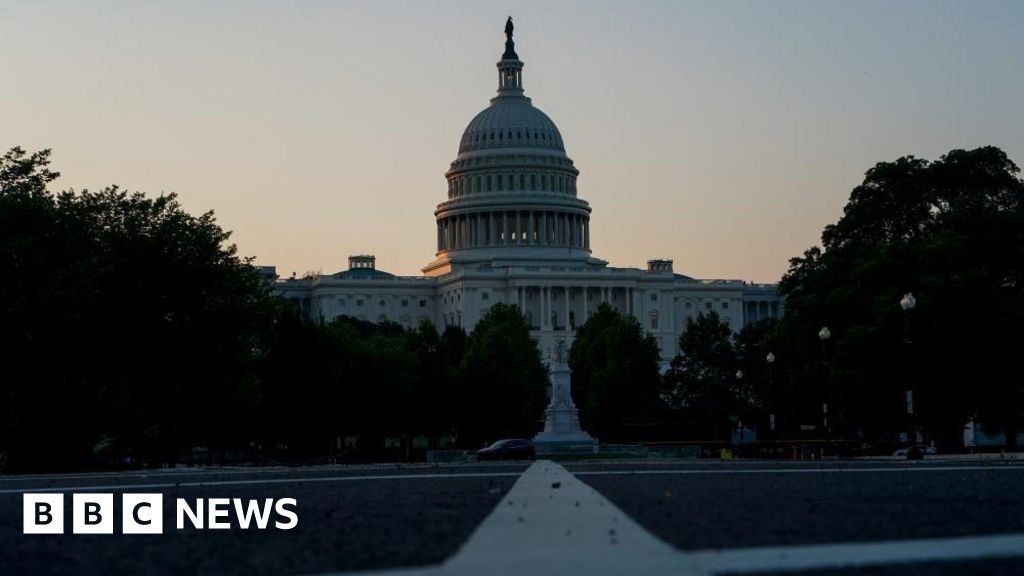The US Senate has begun voting on a massive spending plan, dubbed the “big beautiful bill”, on Monday after weeks of contentious negotiations.
Republicans – who control both chambers of Congress – were divided over how much to cut welfare programmes in order to extend tax breaks.
President Donald Trump wants Congress to pass the bill by 4 July.
After the House of Representatives passed its version of the bill last month by a single vote, the legislation went to the Senate. Because of the changes made by the Senate, the bill will go back to the House for another vote.
On Sunday, after weeks of public discussion, the Senate moved to open debate on the budget bill in 51-49 vote.
Two Republicans and all Democrats voted against opening debate, arguing for further changes to the legislation.
One of those Republicans, North Carolina Senator Thom Tillis, announced his retirement following that vote and said the legislation broke promises Trump and Republicans made to their voters.
“Too many elected officials are motivated by pure raw politics who really don’t give a damn about the people they promised to represent on the campaign trail,” Tillis wrote in his announcement.
The other Republican who voted against moving the bill was Kentucky Senator Rand Paul who objected to debt increases, and cuts to Medicaid, a healthcare programme that is relied on by millions of elderly, disabled and low-income Americans.
There could be up to 20 hours of debate beginning on Monday when senators argue for or against adding amendments to the nearly 1,000-page bill in a process called “vote-a-rama”.
Democrats are expected to use all ten of their allotted hours of debate, while Republicans likely will not.
When the bill comes up for a full Senate vote – expected either late on Monday night or early Tuesday morning – Republicans can only afford three defections in order for the bill to pass.
If they lose three votes, Vice President JD Vance will have to cast a tie-breaking vote.
The bill will then return to the House of Representatives, where leadership has advised a full vote on the Senate’s bill could come as early as Wednesday morning.
While Republicans control the House, they can also only lose a handful of votes. There are frustrations with the Senate version of the bill among some Republicans in the House, which could make for another close vote.
Democrats in both chambers have largely objected to the spending cuts and the proposed extension of tax breaks.
Meanwhile, Republican debate has focused on how much to cut welfare programmes in order to extend $3.8tn (£2.8tn) in Trump tax breaks. The proposed cuts would strip millions of America’s poorest of health insurance.
The version of the bill senators will soon vote on contains tax cuts that Trump campaigned on, such as a tax deduction on Social Security benefits, and the elimination of taxes on overtime work and tips.
The bill also authorises $5 trillion in new borrowing which will add to a growing US debt load – a move that goes against what many conservatives have argued for and infuriated one-time Trump confidant Elon Musk earlier this summer.
The Senate version of the bill will add $3.3tn (£2.4tn) in debt, according to new estimates from the Congressional Budget Office, a non-partisan federal agency.
The national debt currently sits at $36 trillion, according to the treasury department.
Treasury Secretary Scott Bessent has urged Congress to address the debt limit by mid-July and warned that if they do not, the US could be unable to pay its bills as early as August.


